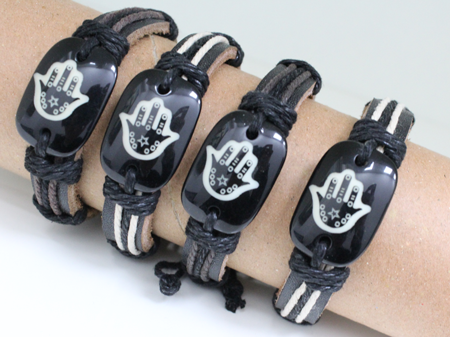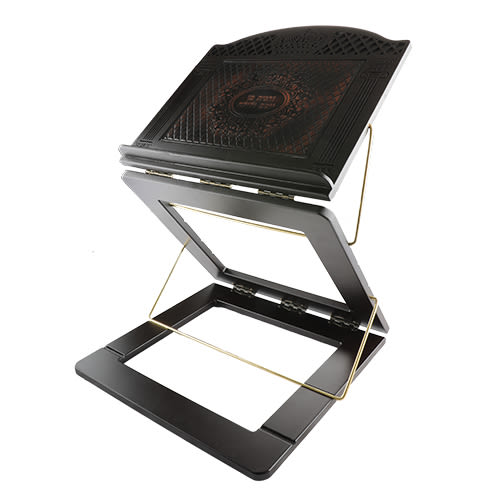
A Cry From the Heart
The head physician of a leading hospital’s emergency room has a routine evening until a yeshiva’s bus flips over on an icy road; among the badly wounded is the doctor’s son…

A Cry From the Heart, Part 1
The doors of the ER slid open and a pair of paramedics rushed in with another stretcher. This was the seventh injured child to arrive from the accident in the span of only a few minutes. When Dr. Avraham Gurya looked down at this patient, though, he gasped in recognition. The inert shape lying on the seventh stretcher was his son.
Hours earlier…
Avraham sat at his desk in the Emergency Room, working on the charts of that evening’s shift. Thankfully there wasn’t much paperwork as there were few patients: it was the winter holiday season. Avraham shook his head as he thought about the semi-humorous highlights of his shift so far: the four-year-old boy who had put a watch battery up his nose thinking it would make his nose glow like the holiday lights; the twin ten-year-olds who had nearly strangled each other while decorating with a roll of tinsel.
Other than those two incidents there had been few emergencies that evening. This was unusual. The ER of Levitt University Hospital was normally one of New York City’s busiest and best emergency treatment facilities. And for good reason – the hospital’s Board of Directors had invested big dollars in fitting it out with the latest state-of-the-art equipment. Avraham couldn’t help but feel a sense of pride every time he walked past the machines, the amazing life-giving and life-sustaining paraphernalia.
And the team that served with him were competent and first-class professionals – the hospital hired only doctors who had trained in the top residency programs in the country, Avraham among them. He had studied medicine at Harvard University Medical School, published several research papers and done an ER residency at Columbia University Medical Center, where he had been the chief resident. He had already been the instrument of saving many lives, which he attributed to his superb education and wide experience at top-notch hospitals.
The tranquility of the night ended when the ER secretary, Charlene Rooks, received a call from the ambulance service about incoming patients. A bus carrying children on the Long Island Expressway had driven over a patch of black ice, flipped over the median guard rail and landed in the path of oncoming traffic. They were sending several of the more seriously injured students to Levitt.
Avraham knew the accident would end the quiet evening. In the short interim before the ambulances would begin to arrive, he walked to his usual davening space down at the end of the ER, pulled open the curtain and stepped inside. This isolated corner was where Avraham always went to secure a bit of privacy to pray whenever he was on duty and still be within call.
Exactly four minutes and fifteen seconds later Avraham emerged from behind the curtain, glanced at his watch and returned to his desk. As it did every evening, his mind had wandered during his prayers: he had thought about the patients he had just seen, his uncompleted paperwork and the upcoming winter vacation he was planning for his family. His inattention didn’t bother him too much. He had spent the requisite four minutes and fifteen seconds and that was what counted. His goal as an ER physician, especially a “senior attending” doctor such as he, was to get his job done in the most efficient manner possible.
With a few more minutes to spare, Avraham sat down at his desk to finish the paperwork. Just then his cell phone rang. It was his wife Rivka.
“Hi sweetheart,” he said as he continued to flip through his papers.
“There was… a b-b-bad accident on the Expressway,” Rivka said, stuttering uncharacteristically.
“Yes, I heard. Some of the injured are coming here.” He automatically placed the papers he had completed into the “records” folder and looked at the next document in the pile.
“Rabbi Nussb-b-aum … just called me,” Rivka stammered. Avraham realized that she was trying to hold back tears. “The bus on the way back home from the yeshivah Shabbaton flipped over. He s-said … Yehudah … was badly hurt.”
“What? What do you mean?” He dropped his pen.
“I don’t know. He spoke for just a second, and I could hardly hear him. All I could hear were boys crying and sirens. I think he said … Yehudah was hurt.”
Avraham said, “I’ll call you back,” and dropped the phone. He ran over to Charlene’s desk.
“What’s the status of the bus accident? Any news?”
“No, nothing much yet,” Charlene said. “They’re just a couple of exits away. The ambulance service called to say they’re sending several boys to us … all badly injured. A few more are going to North Shore. They’re still pulling kids out of the wreckage. It’s a mess. They said they haven’t seen…”
She kept talking, but Avraham was already running over to the entrance to the ER. He stepped out into the falling snow to wait for the ambulances.
Avraham stretched his neck and strained his ears to listen for the wailing of the sirens. All he could hear was the sound of the wind whirling snowflakes past his ears. But then he saw headlights probing the long curving drive leading to the hospital and his heart skipped a beat. As the vehicle approached, he saw it wasn’t an ambulance but a camera truck from Channel 3 News. How do they always find out as soon as these things happen?” Avraham asked himself.
Rivka’s minivan pulled into the parking lot. She stepped out of the car and hurried over to Avraham.
“Are they here yet?”
Avraham shook his head.
“I’m so worried. Tell me it will be OK.”
“Rivka, you know we have the best ER in the Northeast,” Avraham said. “We’re the best equipped for emergencies. We’ll take care of him.”
“I know but … but I’m so worried. He’s only fifteen … just a baby,” Rivka said.
Avraham and Rivka stood by the door for what seemed like an eternity. Finally they heard the raucous whine of the sirens and saw the lights of the lead ambulance barreling up the street.
The ambulance pulled up and the paramedics opened the doors from inside and jumped out. They pulled out a rolling stretcher carrying a redheaded boy covered in blood and rushed him past the automatic sliding doors.
Avraham turned to follow the stretcher inside when he heard the crunching sound of more tires behind him. He spun around to see a second and third ambulance pulling up. He waited to see who was inside. They carried out an apparently very tall, lanky boy who took up the entire length of the stretcher. Out of the next ambulance came Yehudah’s best friend, Shlomo Ganzfried. If Shlomo was here, Yehudah wouldn’t be too far behind.
“Hey, Doc,” Shlomo said, grimacing in pain.
“This one’s a sixteen-year-old with an open femur fracture with stable vitals,” the paramedic said to Avraham.
“Hi, Shlomo,” Avraham said looking down at the stretcher. He forced himself to smile. “We’re going to take great care of you here.”
“It happened so … so quickly,” Shlomo said. “I was sitting next to Yehudah … the last I saw, he was flying through the window.”
Avraham felt like he had been punched in the stomach. A child thrown from a spinning bus would be in pretty dismal condition.
Another ER doctor escorted Shlomo to the trauma room. “Tell Charlene to call Anesthesiology and the ICU. We’re going to need more assistance,” Avraham told him.
Several more ambulances arrived but none carried Yehudah. One by one the boys were lifted from the stretchers and placed on beds in the ER. Avraham and the other physicians began triaging and treating the boys.
Avraham could feel the sweat running down his face. He was always calm under pressure, but tonight was different. He thought only of his son. Then two orderlies were wheeling in another stretcher and Avraham hurried to meet it. Avraham ceased hearing the cacophony around him. He froze as he looked down at his son’s frail, broken body on the stretcher.
“We found him lying on the side of the road after we pulled the others out of the wreckage,” one of the paramedics told Avraham. “He was unconscious at the scene and had decreased breath sounds on the right side. We intubated him in the ambulance but he is not holding his O2 sats well.”
Avraham ordered a STAT chest x-ray for Yehudah, which revealed a large right-sided pneumothorax caused by a rib fracture. He knew he was jeopardizing his career by treating his own son, but nothing else mattered. Avraham didn’t trust anyone else to do the job. The other doctors assisted Avraham but let him take the lead.
 Avraham quickly and efficiently placed a chest tube into the right side of his son’s thorax and watched as his oxygenation dramatically improved. However, Yehudah’s blood pressure was dropping fast. He was receiving boluses of fluid but they had not succeeded in stabilizing him. He was bleeding, but from where?
Avraham quickly and efficiently placed a chest tube into the right side of his son’s thorax and watched as his oxygenation dramatically improved. However, Yehudah’s blood pressure was dropping fast. He was receiving boluses of fluid but they had not succeeded in stabilizing him. He was bleeding, but from where?
“Charlene, I need a STAT CAT scan,” he called out. “And tell surgery to send someone down to prep…” he paused before saying the next words, still incredulous that he had to say them, “my son for surgery.”
The surgeon, Dr. Robert Jones, arrived and the CT was performed. The report found multiple fractures in his ribs and other bones, as well as a large laceration in his spleen causing internal bleeding. The prognosis was frightening. Dr. Jones ordered another blood transfusion and started prepping him for the hours of surgery that would follow. Avraham knew that Dr. Jones was one of the best surgeons in the city. But with the extent of his son’s injuries, Avraham knew that the surgery needed to go exactly perfectly, and if not … Avraham shuddered at the thought.
Now Avraham saw that his wife had come in with him and had been standing aside, watching everything. Now that Yehudah was in Dr. Jones’ care, it was time to give her the attention she so desperately needed. He wondered if Rivka had any idea how poor their son’s prognosis was. He put Yehudah’s chances of survival at below 10 percent.
“Rivka, I’m sorry … I did everything I could…”
Rivka’s expression changed immediately from anxiety to clear distaste and anger. He wasn’t sure what had made her emotions change so quickly. It was probably just the overwhelming stress of the evening.
“What I mean is, I stabilized him, I worked on him, and although he is in excellent hands, his injuries are life threatening.”
To be continued.
(Originally published in Hamodia Magazine’s fiction section November 17, 2010)











Tell us what you think!
Thank you for your comment!
It will be published after approval by the Editor.